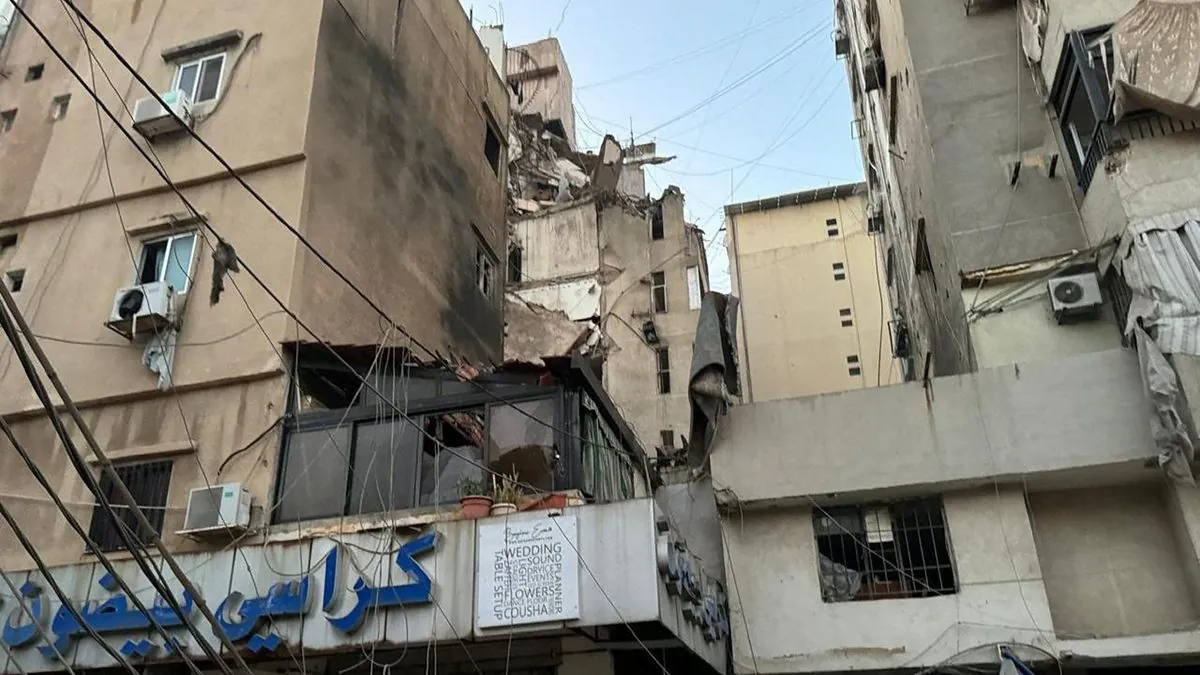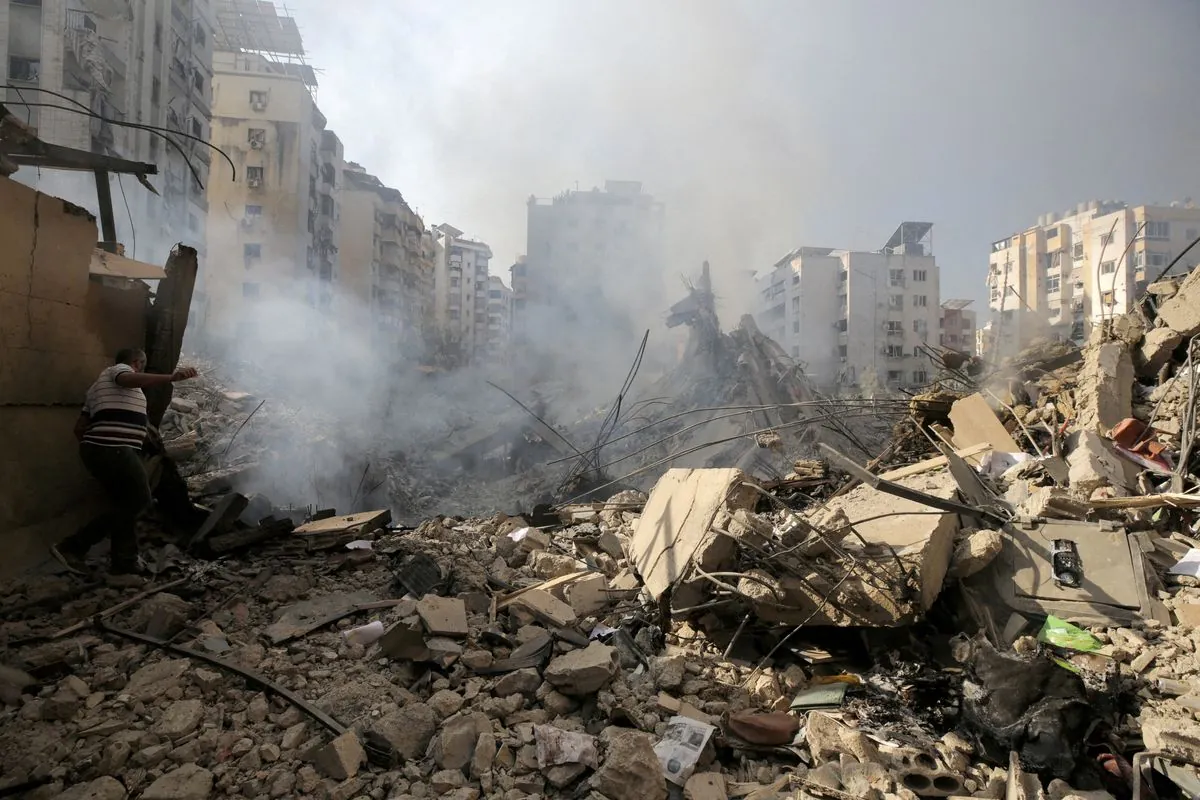Israeli Airstrike Hits Beirut, Escalating Regional Tensions
An Israeli airstrike on Beirut killed at least two people, marking a significant escalation in the conflict. The attack raises fears of a wider regional war involving Iran and the United States.

In a significant escalation of regional tensions, an Israeli airstrike targeted an apartment building in Beirut on September 30, 2024, resulting in at least two fatalities. This marks the first attack within the Lebanese capital's city limits, heightening concerns about a potential wider conflict in the Middle East.
The strike, which hit the upper floor of a residential building in the Kola district, comes amid increasing Israeli operations against Iran-backed groups in the region. Over the past two weeks, Israeli forces have intensified their attacks on Hezbollah targets in Lebanon and Houthi positions in Yemen, raising fears of a broader confrontation that could potentially involve Iran and the United States.
Lebanon has borne the brunt of the recent escalation, with the Health Ministry reporting over 1,000 deaths and 6,000 injuries in the past fortnight. The conflict has also led to the displacement of approximately one million Lebanese citizens, representing about 15% of the country's population.

The intensifying bombardment has resulted in the deaths of several high-ranking Hezbollah leaders, including its Secretary-General, Sayyed Hassan Nasrallah. Israel has stated its intention to continue the assault, citing the need to secure its northern regions from Hezbollah rocket attacks.
In Yemen, Israeli airstrikes targeted the port of Hodeidah, a crucial entry point for humanitarian aid. The Houthi-run health ministry reported at least four fatalities and 29 injuries from these attacks, which Israel claimed were in response to Houthi missile strikes.
The escalating violence has prompted international concern, with the United Nations repeatedly calling for de-escalation and a peaceful resolution to the conflicts in the region. The situation is further complicated by Lebanon's ongoing economic crisis, which has been severely impacting the country since 2019.
U.S. President Joe Biden has emphasized the need for a diplomatic solution while simultaneously authorizing military reinforcements in the region. When asked about the possibility of avoiding an all-out war in the Middle East, Biden stated, "It has to be," indicating his intention to engage in discussions with Israeli Prime Minister Benjamin Netanyahu.
The current situation underscores the complex geopolitical dynamics of the Middle East, with multiple state and non-state actors involved. The use of drone warfare and targeted assassinations has become increasingly prevalent in these conflicts, adding another layer of complexity to diplomatic efforts.
As the international community watches closely, the fear of a "regional war" or the ignition of the "Middle East powder keg" looms large. The displacement of civilians and the potential for a refugee crisis remain significant humanitarian concerns, necessitating a coordinated international response.
The coming days will be crucial in determining whether diplomatic efforts can prevail in de-escalating the situation or if the region will descend into a wider conflict with far-reaching consequences.


































